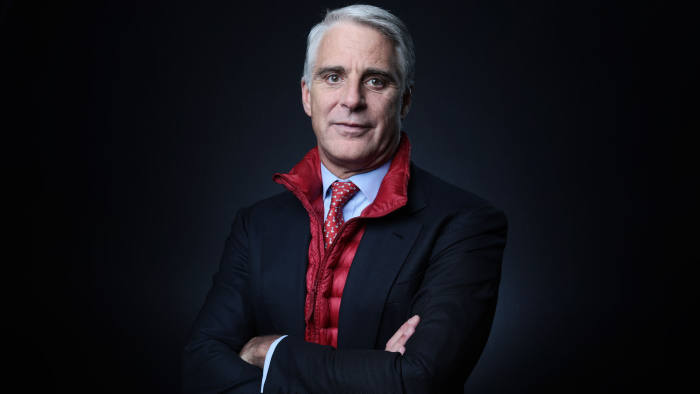
Andrea Orcel suffers defeat in criminal complaint against Santander
Ex-UBS banker is pursuing a civil case against the Spanish bank for alleged breach of contract
by Daniel DombeyAndrea Orcel has suffered a defeat in his battle with Santander after a Madrid court rejected his claim that Spain’s biggest bank criminally manipulated evidence in a separate civil case the investment banker is pursuing.
The former head of UBS’s investment bank is suing Santander for up to €112m, alleging breach of contract after the bank reversed a decision to install him as chief executive. Santander says the offer letter Mr Orcel was issued in September 2018 did not constitute a contract.
In a separate criminal proceeding — an adjunct to his main civil case — Mr Orcel argued that Santander had tampered with evidence it submitted about the process of making the offer by deleting information such as email addresses.
But a Spanish criminal court ruled in a decision that such alterations were not significant enough to qualify as fraud.
“The alleged facts do not meet the requirements for the complaint to proceed,” Marcelino Sexmero Iglesias, the presiding judge in the criminal complaint, wrote in a ruling dated February 11 and first reported by the Spanish press.
“We cannot share the thesis of the plaintiff that . . . the submission of four emails in which the [identity of the] sender and a bank disclaimer is removed or added improperly . . . involves any kind of fraudulent conduct . . . when the content [of the emails] is not contested by the plaintiff,” the ruling noted.
While the criminal ruling is distinct from the civil process, the outcome could have a bearing on the central consideration in the case: whether Santander’s offer letter for Mr Orcel to take up the post of chief executive amounted to a contract.
Recommended
Andrea Orcel
Andrea Orcel demanded more power before Santander chief role withdrawn
Santander submitted the emails from September 2018 — in particular, one written by Dee Symons, a recruitment consultant — as evidence that the draft contract for Mr Orcel was subject to negotiation and was separate from the offer letter to him.
Mr Orcel argued that Santander manipulated this evidence by deleting Ms Symons’ email address, which refers to her firm, Russell Reynolds, as if to make it appear that the correspondence from her was from the bank itself.
Since this argument was not taken up by the criminal court, the civil case is now set to consider whether the documents submitted by Santander establish if Mr Orcel was under contract to the bank or not — and therefore whether he is liable to compensation.
A preliminary hearing in the civil case is set for April, but the case may last into 2021. The criminal ruling is also subject to appeal.
Santander declined to comment, as did a spokesman for Mr Orcel. Ms Symons was not immediately available for comment.